 Back in August, I launched the Women Playwrights of D.C. Series. It was encouraging to learn about the experiences, challenges, dreams and ambitions of my colleagues in this community. While much has transpired in our respective lives and careers since our last conversation, it appears that for audiences and threatre artists in the D.C. Theatre community opportunities to experience the work women playwrights and playwrights of color remain few and far between. As season announcements have been rolling out, I've received them with a mix of enthusiasm and disappointed. I'm excited about the plays I'll have an opportunity to experience next season. At the same time, it's frustrating that so few opportunities are available for women and artists of color. What's more, I've received numerous emails from beloved friends and respected colleagues expressing their own anguish and despair over the situation. Honestly, it's hard to stay positive and create in an environment that doesn't seem to value the stories of women and people of color. However, it doesn't serve us to sit mired in misery and disappointment. It just doesn't. We must find ways to commune, heal, encourage, nurture, support, and challenge each other and ourselves. If we do, magic can happen. For instance, director Elissa Goetschius is compiling a nationwide list of women directors. What an amazing and extensive resource. Such positive and productive action is inspiring and necessary. For my part, I've invited the Women Playwright of D.C. to Sound Off in a fun, direct and productive way. I mean, what's the use of being sad, angry, frustrated and disappointed in silence, when you can dance, sing, shout and write about it. As more responses come in, I'll post them. For now, please enjoy these submissions from Bari Biern, Allyson Currin, Kitty Felde, Caleen Sinnette Jennings, Kristen LePine, Liz Maestri, Danielle Mohlman, Kristy Simmons, and Laura Zam. 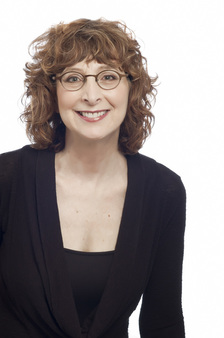 JACQUELINE LAWTON: Would you consider writing under a male pseudonym if it guaranteed you a long, successful and sustainable career (ie. awards, critical acclaim and regular productions of your work at local, regional, and national theatres)? The hitch, you could only reveal your identity posthumously. Why or why not? Bari Biern: This one’s a no-brainer. Please feel free to bill me as Barry Biern. JL: Next, how do you define success? How has this definition evolved over the years? BB: Success is seeing my script or libretto realized onstage exactly—or better than-- the way I envisioned it while I was writing. In the beginning, I imagined success would be getting a company to actually produce one of my scripts. Since then, I’ve witnessed, through the experiences of my fellow playwrights, that, if it’s not the right company, a production can actually break your heart. JL: As a playwright, what do you need from your community of:
JL: Pick a local, regional or national theatre company, study its mission and a pitch play directly to them: BB: Okay, Washington Stage Guild. Here’s the elevator pitch, even though you don’t have an elevator. You produce “eloquent plays of idea and argument, passion and wit…enacted by a classical ensemble.” You also present excellent adaptations of classic literature, including this season’s offering, Dante’s Inferno. My adaptation of E.F. Benson’s Mapp & Lucia has all the elements you seek—idea, argument, passion and wit, plus it’s written by a local woman playwright. Who could ask for anything more? If your main concern is the number of characters, Bill Largess can play all the parts! JL. What's next for you as a playwright? Where can we follow your work? BB: This June, the In Series will present the DC premiere of Puccini’s Gianni Schicchi, featuring my English libretto, which sets the opera in South Philadelphia in the 1970s (yes, cheese steaks are involved). The Round House Theatre’s HeyDay Players will present my ten-minute play, The Old and the Zestless. This wonderful title was suggested by the actors. I love it. I just completed the English script and lyrics for The Key, and original family musical by Hungarian composer, Tibor Zonai. We’re currently looking for producers. Next up…I’m writing an English libretto for the fall 2013 In Series production of Mozart’s The Abduction From the Seraglio, directed by the wonderful Tom Mallan. You can follow my adventures at my website, www.baribiern.com. 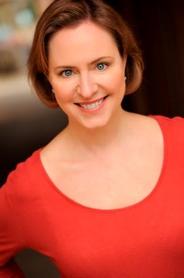 JACQUELINE LAWTON: Would you consider writing under a male pseudonym if it guaranteed you a long, successful and sustainable career (ie. awards, critical acclaim and regular productions of your work at local, regional, and national theatres)? The hitch, you could only reveal your identity posthumously. Why or why not? ALLYSON CURRIN: Oh, I hate this question. I hate it because I can’t pretend to be high-minded and noble when I answer it. I would probably totally do that with all those career certainties in place. Dammit. But here’s the flip side: I have always been extremely proud of my work, and proud that it shows up under my name. I have been tempted before to write under a male pseudonym, and know women artists who do. But in the final analysis, I am too proud of my work. I want my name on it. So, that’s a dream world/real world response. Do with it what you will…sigh… JL: Next, how do you define success? How has this definition evolved over the years? AC: Being a performer has diminished in importance for me, mostly because my playwriting took off in the way that it did. Playwriting was ultimately more gratifying and artistically fulfilling. I have also come to place far less importance on working within “the system.” It feels so good to seize the reins, buck the trends and produce your work yourself. I also think I am more generous and less competitive with my fellow playwrights, and I am better at embracing my theatre community, singing its praises. But most compellingly, I define my success increasingly by the growth of my own expression and creativity. When I started out, I was definitely more content to coast along with what I knew was a sure thing, with what was glib and funny. That was enough then. It isn’t CLOSE to enough now, and I think my writing has really deepened and grown because of that. I think I’m a better playwright now. JL: As a playwright, what do you need from your community of:
JL: Pick a local, regional or national theatre company, study it's mission and a pitch play directly to them: AC: Kitchen Dog Theatre! Let’s partner up on my new play CAESAR AND DADA – a dark backstage comedy about a production of JULIUS CAESAR in post-World War I Zurich. The days of Dada are upon them and Dada’s punk rock anarchy starts to infect their production, their dreams, and ultimately their lives. It’s a play about a world blown apart! About tables without legs! “The Huns are coming – disassemble the LOOM!!!!” Come on, Kitchen Dog, you guys like to jack things up – let’s play! JL: What's next for you as a playwright? Where can we follow your work? AC: I have a lot coming up fortunately!
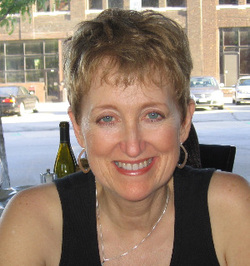 JACQUELINE LAWTON: Would you consider writing under a male pseudonym if it guaranteed you a long, successful and sustainable career (ie. awards, critical acclaim and regular productions of your work at local, regional, and national theatres)? The hitch, you could only reveal your identity posthumously. Why or why not? Kitty Felde: Nope. I've been Kitty Felde since I was born. If my stuff isn't good enough, it isn't good enough. Changing my name to Ralph isn't going to help. JL: Next, how do you define success? How has this definition evolved over the years? KF: Seeing my work on a large regional stage would be considered a real success for me. I've written for television, acted in a Woody Allen film, got to interview Colin Firth. Those are successes of another kind. But even though my work is performed around the world, I don't think I'll see myself as a "successful playwright" until the Taper or Arena or some other legacy regional theatre picks up a piece of mine. JL: As a playwright, what do you need from your theatre community: KF: Actors are gold. They are generous with their time and talent, hungry to take on a new play. Bless them all. Directors are like your wise older sister, seeing things in your work and challenging you to defend your stuff. Designers have a gift I wish I had: making words into three dimensional spaces. Playwrights "get it" - they understand the need to sit for long hours at the keyboards for little encouragement and no money. They don't think I'm crazy. Artistic Directors are my cheerleading squad. Even when they don't tackle one of my plays, the fact that they read it or come to a reading or send an encouraging email makes me feel as though I'm part of this larger theatrical community. Audience members keep me honest. If it doesn't work, they let you know with every squeak of their chair, rustle in a purse, even a yawn. And bless them, they laugh to let me know when I get it right. Theatre Critics are the smartest kid in the classroom - even when they're not. The key is to know in your heart when they're right - and when they're not. JL: Pick a local, regional or national theatre company, study it's mission and a pitch play directly to them: KF: done JL: What's next for you as a playwright? Where can we follow your work? KF: My angry response to "Clyburn Park" - a ten minute piece about how desegregation REALLY happened in the 1960's called THE FLIER - gets a reading in LA next month. You can keep up with me at www.kittyfelde.com. 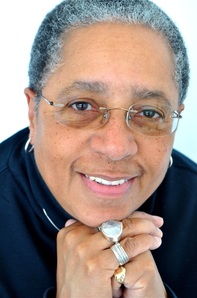 JACQUELINE LAWTON: Would you consider writing under a male pseudonym if it guaranteed you a long, successful and sustainable career (ie. awards, critical acclaim and regular productions of your work at local, regional, and national theatres)? The hitch, you could only reveal your identity posthumously. Why or why not? CALEEN SINETTE JENNINGS: Sure. It would be so much fun and it would prove a point, even if I wouldn't be around to enjoy it. I don't need the public recognition and acclaim. I don't need people to know that a woman wrote it. The buzz would be seeing my work on stage, hopefully getting people to think and engage with ideas. And the money would be nice, of course. JL: Next, how do you define success? How has this definition evolved over the years? CSJ: I define success as being alive and healthy, loving and being loved, learning, taking risks, having time to smell the flowers, doing a meaningful service for someone else. When I can do this through my plays or through teaching, it's more than success, it's nirvana. The day I let go of self-imposed deadlines regarding recognition, awards, or number of productions and embraced success in terms of what I listed above, was the day I felt my writing become freer. Now I can genuinely celebrate someone else's success (without having that secret pang of regret or depression about my perceived lack of progress). I'm successful because students I've taught are working and happy, because actors and directors in this town ask me, "you working on something?", because I'm living in D.C. where I get asked questions by Jacqueline Lawton, and I get to read the inspirational answers of my sister playwrights. Feels like success to me! JL: As a playwright, what do you need from your community of:
JL: Pick a local, regional or national theatre company, study it's mission and a pitch play directly to them: CSJ: TBA! JL: What's next for you as a playwright? Where can we follow your work? CSJ: I'm in progress on a radio play, another ten minute play, a children's play, and a full length play for a college. Send me an e-mail or call me. I don't yet have a website (although I should), I don't post on Facebook and I don't tweet. Thank God for my husband and my friends who are slowly but surely dragging me into the 21st Century. 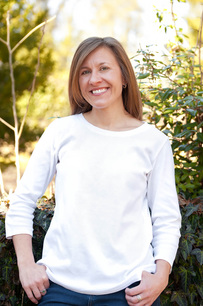 JACQUELINE LAWTON: Would you consider writing under a male pseudonym if it guaranteed you a long, successful and sustainable career (ie. awards, critical acclaim and regular productions of your work at local, regional, and national theatres)? The hitch, you could only reveal your identity posthumously. Why or why not? KRISTEN LEPINE: The use of a “nom de plume” has a lengthy literary history especially for women writers wishing to disguise their gender often at the behest of publishers who believed it would increase male readership. And although I can think off the top of my head of many women who wrote/still write under male or gender neutral pseudonyms (George Sand, The Bronte sisters, Louisa Mae Alcott, DC Fontana, JK Rowling.), men have used female pseudonym too (Jane Martin and – okay, I can only think of Jane Martin, but surely there are more.) I have mixed feelings about writing under a pen name (Who cares about the gender of the writer? What matters is quality! Aren’t we beyond this? Would a woman really be more successful writing under a pseudonym than her own name? Oh wait, just how many female writers were produced in US theatres in the 2012-2013 season? Still, isn’t using a pen name to disguise gender only contributing to the problem? I fear I am over thinking this. Argh!). At the end of the day, I want to write plays, plays that matter, plays that do not sit on my hard drive, plays that are produced. If having a different name helps, then it is worth consideration. JL: Next, how do you define success? How has this definition evolved over the years? KL: For me, success is the ability to actively pursue what I love to do, what makes me happy, at my own pace. I don’t think my definition has changed, but I what has changed is that I am more secure with my definition. JL: As a playwright, what do you need from your theatre community: KL: I am grateful for the relationships I have built in the theatre community. It is because of these partnerships with supportive actors, directors, playwrights, artistic directors, and audience members that I have been able to continue to pursue my passion for playwriting. What do I need? Continued support :~) JL: Pick a local, regional or national theatre company, study its mission and a pitch play directly to them: KL: This was my New Year’s Resolution: to be more proactive in marketing my scripts. This is admittedly my weakness. I have been more proactive. Thank you for inspiring me further! JL: What's next for you as a playwright? Where can we follow your work? KL: Currently, I am working on a major rewrite of my Greek inspired saga about working mothers titled Leto Legend. I am also in the midst of a new marketing campaign, so perhaps in a couple of months, I will have more news to share with you. Please visit me at kristenlepine.com. 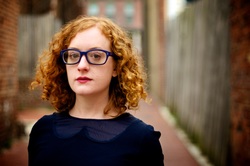 JACQUELINE LAWTON: Would you consider writing under a male pseudonym if it guaranteed you a long, successful and sustainable career (ie. awards, critical acclaim and regular productions of your work at local, regional, and national theatres)? The hitch, you could only reveal your identity posthumously. Why or why not? LIZ MAESTRI: I actually considered doing this when I started playwriting, but quickly decided against it. It would feel deceptive, and I don’t like the idea of not being able to take credit for, promote, or openly talk about my work. (This would also mean having to stay off social media entirely. Hermitage!) My work is my work, and if I had to lie to be recognized or fit into someone’s bullsh** idea of what it means to be a professional writer, well then I guess I’ll be DIYing it for the rest of time. It’s sad that we even have to ask this question in 2013, and even sadder that an industry that fancies itself progressive has a problem with women. That said, I sometimes wish I had an androgynous first name, or used initials or something, because this is what we’re dealing with. All of my leading characters are women, and I know that these characters and their stories would be taken more seriously if it appeared that a man wrote them. Because it’s 1847. JL: Next, how do you define success? How has this definition evolved over the years? LM: This is tough. I continue to fight against my more superficial concepts of success, such as validation and recognition, because they place control of my own pride into the hands of others. This fight is hard to do in an industry that’s so heavily based on awards and contests, but for me, focusing on recognition is an unhealthy and joyless place. I hope to put these feelings to rest. Here is my real, prizelust-free vision of success: Success means having the opportunity to make good work year-round with people I respect, and being able to see clear improvements in my writing as time goes by. JL: As a playwright, what do you need from your community of:
JL: Pick a local, regional or national theatre company, study its mission and a pitch play directly to them: LM: This pitch is for Jenny and Randy at Rorschach Theatre in DC. Their mission is in spot-on harmony with the kind of work I do, and I love that they aren’t afraid of out-there scripts and locations. The piece I’d ask Rorschach to consider is called In the Dark of the Sun, a Western about three tough women traveling through the American frontier. The women, Dame, Dean, and Edna, are missionaries for the leader of a strange religion back east. They set up camp on a trail from river to plains to the Rockies, and are fiercely committed to their quest--so much so that heaven help the man or woman who doesn’t heed their word. The women wreak havoc along the way, but when Dean has a run-in with a lone-wolf cowboy and a grieving American Indian that leaves one of her comrades dead, she struggles to decide where her loyalties lie and what her future holds on the other side of the mountains. This play would also help bridge DC’s theater and music scenes; I’m interested in working with a local musician and songwriter (ex-Northern Liberties, Ruffian Records) on a potentially live score. JL: What's next for you as a playwright? Where can we follow your work? LM: In May, a reading of my new play House Beautiful at the Locally Grown Festival and a run of Condo Condo Condoland at the unstoppable EMP Collective in Baltimore. In July, DC’s Field Trip Theatre is doing a run of my play Fallbeil at Capital Fringe. You can also check in at www.lizmaestri.com to see what’s going on, and follow me on Twitter (@lizmaestri) if you are so inclined. 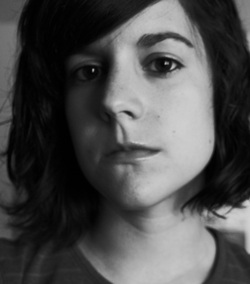 JACQUELINE LAWTON: Would you consider writing under a male pseudonym if it guaranteed you a long, successful and sustainable career (ie. awards, critical acclaim and regular productions of your work at local, regional, and national theatres)? The hitch, you could only reveal your identity posthumously. Why or why not? DANIELLE MOHLMAN: Never. I'm not ashamed of being a woman. JL: Next, how do you define success? How has this definition evolved over the years? DM: I measure my own success by the creative work I'm doing. As long as I'm writing, developing, or working on a production of my plays, I know I'm doing something right. It's wonderful to be validated by a theatre and the recognition that comes from all that is incredibly flattering, but if I let others define my success, I would never be able to get out of my head. JL: As a playwright, what do you need from your theatre community: DM: I have been incredibly happy with all the smart and talented actors, directors, designers, and playwrights I've worked with here in DC. The audiences who've seen my work have been incredibly receptive and the critics have asked thought-provoking questions. However, I want the artistic directors here to be fearless. I'm sick and tired of seeing theatre companies importing talent from New York. If DC truly wants to live up to its status as the second-largest theatre town in the US, this town needs to embrace the diverse voices and talent here. JL: Pick a local, regional or national theatre company, study its mission and a pitch play directly to them: DM: Let's go with Woolly Mammoth, since I have a massive theatre crush on them. Dust is a reverse-gender Vietnam-era adaptation of J.M. Barrie's Peter Pan. This piece has one foot firmly rooted in reality and another buried in the fantastic -- teetering between an untouched tribe of misfit women and the reality of the Vietnam War. JL: What's next for you as a playwright? Where can we follow your work? DM: An open movement workshop of Dust with Artists' Bloc on May 26 at the Forum space at Sidney Harman Hall and a staged reading of Nexus with Field Trip Theatre at The Wonderland Ballroom on June 9. And a couple more things I can't announce just yet. (I've always wanted to say something like that.) 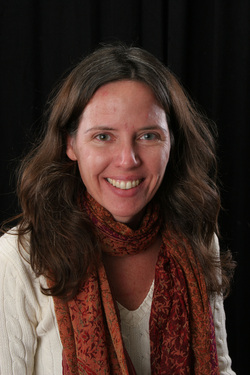 JAQUELINE LAWTON: Would you consider writing in a male pseudonym if it guaranteed you a long, successful and sustainable career (i.e. awards, critical acclaim and regular productions of your work at local, regional, and national theatres)? The hitch, you could only reveal your identity posthumously. Why or why not? KRISTY SIMMONS: While I think it would be fun to dress in men’s clothing and have an inner wink going all the time at my male-won success, the drudgery of having to live this double life would be less comfortable than donning a pair of high heels. I’d prefer to be obscure and valued by my friends and colleagues. The joy I feel in my writing is as valuable as gold compared to the daily removal of men’s clothing and identity. JL: Next, how do you define success? How has this definition evolved over the years? KS: I define success as writing the plays I want to write, having them be valued as moving and thought-provoking, and earning a livable income from it. At first my definition of success was talent in overcoming the challenges set in my work, gaining awards and having productions. The only difference in its evolution is that now I expect to get paid for all my effort and years of work. JL: As a playwright, what do you need from your community of:
JL: Pick a local, regional or national theatre company, study its mission and pitch a play directly to them. KS: I’d like to pitch a play to Theater J. As a fan of their productions I think the following theme would be something they might get excited about. I have a play outline in the works about a female screenwriter who was raised in a secular Jewish family. She receives a specialized grant to mentor an African-American student on a screenplay collaboration. This young writer’s passion for his African-American history, his identity and his trying to understand her lackadaisical attitude about her Jewish ancestry awakens her Judaism. As the plot evolves a convergence of three different worlds collide –that of their daily life, that of the history of blacks and Jews, and then the imagined characters in their story. These ultimately converge on many levels, providing a surreal world for the investigation of Jewish identity in our modern world. JL: What’s next for you as a playwright? Where can we follow your work? KS: Right now I’m writing a play that’s a video-performance piece for a gallery called Doris-Mae. It follows three couples and two characters will be recorded and projected on a video screen behind four live actors. They will respond and talk to each other. The play is about the patterns we have in relationships, at the particular point where one person wants to see a specific change in the relationship. It explores how people try to change one another’s behavior. It will be performed in the gallery in June. You can follow my work on www.kristysimmonsart.com or friend me on Facebook to get updates.  JACQUELINE LAWTON: Would you consider writing under a male pseudonym if it guaranteed you a long, successful and sustainable career (ie. awards, critical acclaim and regular productions of your work at local, regional, and national theatres)? The hitch, you could only reveal your identity posthumously. Why or why not? LAURA ZAM: I can't imagine writing under a different name. I write a lot of autobiographical pieces, so this is not really an option for me. But aside from that, if the theater were not interested in my work, I would just work in another medium. I'd just keep going until I found an audience for my my art and for me as an artist -- just as I am! JL: Next, how do you define success? How has this definition evolved over the years? LZ: For the past few years I've been really interested in art and entrepreneurship. However, I never studied business formally until two months ago when I enrolled in a business course at the DC Women's Business Center. It was amazing. The class just finished last night, so I will answer your question still wearing my (well-earned -- that class was hard!) entrepreneur's hat. Success for me is profit. I know that's a naughty word in art spheres. But I see it like this: since I don't run a non-profit organization, my art activities -- by business -- is a for-profit enterprise. Therefore, the health--and sustainability--of this enterprise depend on my ability to cover my expenses, pay myself a salary, and have something left over to reinvest in my career. Since I don't have a day job, there's no other way for me to live as an artist. Therefore, success, for me, is profit. But this is just a more specific way of saying that success is truly making a living doing what I love. JL: As a playwright, what do you need from your community of:
JL: Pick a local, regional or national theatre company, study it's mission and a pitch play directly to them: LZ: Great idea. I'll do that. JL: What's next for you as a playwright? Where can we follow your work? LZ: Right now I'm working on a memoir that's based on my play MARRIED SEX. I'm also investigating ways of bringing my MARRIED SEX play to New York for a production, which I see extending into a national tour. Eventually I see the memoir and the play reinforcing each other, along with video content I'll be creating for this project (including interviews, performance footage, documentary footage, and monologues performed in character). My vision is to these elements work together with some synergy. I also intend to donate a portion of proceeds to organizations providing sex education.
0 Comments
Your comment will be posted after it is approved.
Leave a Reply. |
My BlogI'm a playwright, dramaturg, and teaching artist. It is here where you'll find my queries and musings on life, theater and the world. My posts advocate for diversity, inclusion, and equity in the American Theatre and updates on my own work. Please enjoy!
Categories
All
Archives
June 2020
Reading List
|
